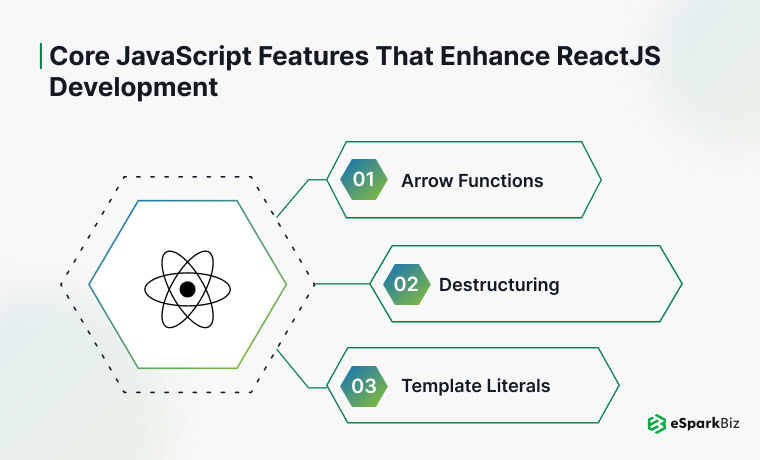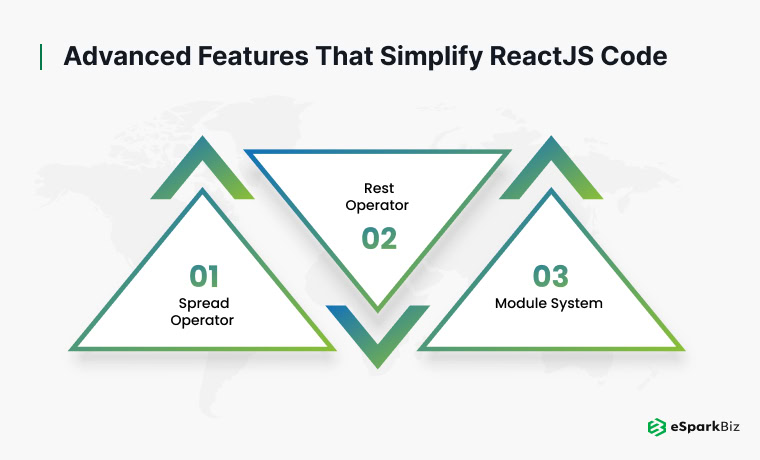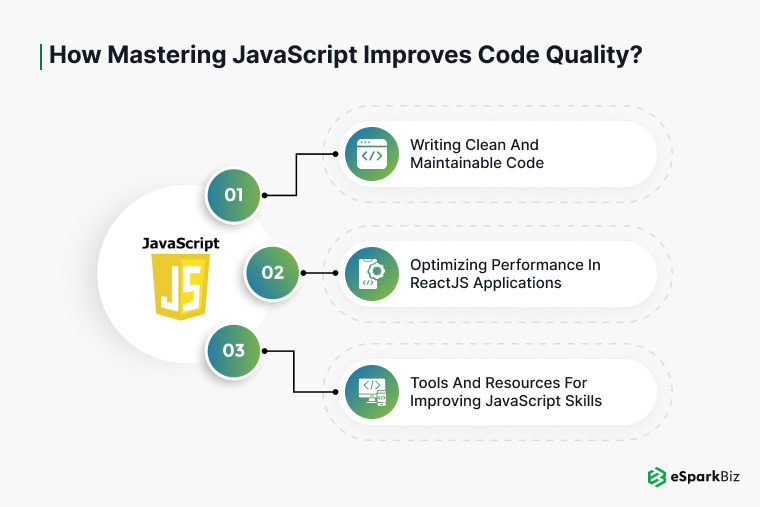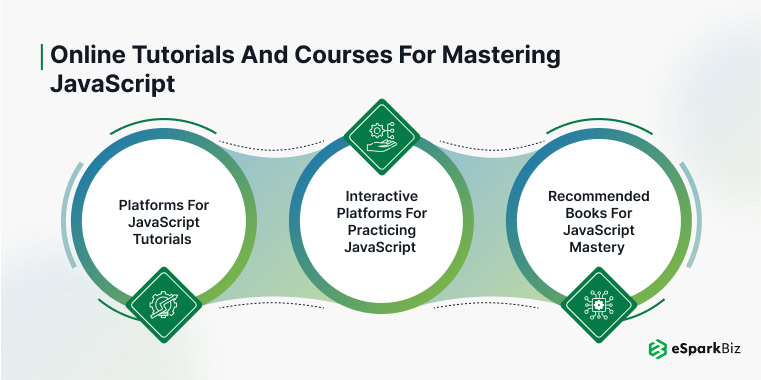Quick Summary :- There is no denying the fact that JavaScript is an integral part of being a good ReactJS developer. If a developer has good JavaScript skills, he or she can build very good ReactJS applications with good performance and create user interfaces that are also optimized, extendable, and manageable.
React JS runs on a JavaScript engine. You could have the framework without learning JavaScript, but it won’t come with much of that speed, control, or quality.
ReactJS is a JavaScript library to create versatile and engaging front-end designs. This effectively means that methods follow the core JavaScript principles from state to litter cycle. When you have JavaScript for ReactJS development at your fingertips, you understand that React JS is the best tool for creating an app without problems.
JavaScript is, without a doubt, a must-learn language regardless of your status, whether a new or professional ReactJS developer. With React, frontend development is simple if you are a master of JavaScript. To be proficient in JavaScript is to bridge the gap between knowing a framework and using it, let alone writing proper, efficient, scalable ReactJS code.
Basics of JavaScript
Developers start with ReactJS and use JavaScript as a base for variables, functions, and data type structures. When these JavaScript fundamentals are understood, an engineer can construct clean, highly performant, bug-free React components.
Let’s see the changes that make code clearer and easier to maintain with the help of ES6: arrow functions, destructuring, and modules.
Key Concepts Every ReactJS Developer Should Know
To use ReactJS Technology, one should understand some basics of JavaScript. These important concepts form the foundation for writing efficient, scalable code:
Variables and Scoping
- To learn how to deal with state and avoid problems connected with the scope, it is crucial to know how the variables in JavaScript—var, let, and const—work.
- For example, we know it has a block-level scope using let, making single variable leakage impossible in React components.
Functions and Closures
- Function Components, hooks, and event handlers are based on JavaScript functions when implementing React.
- It is crucial in situations involving data in handlers or callback functions; they let you work with variables from the parent scope.
Promises and Async/Await
- When you create a React application, for example, the app communicate with APIs, which teaches you how to write ASYNCHRONOUS code.
- The use of Promises and async makes the management of asynchronous operations less of a challenge while yielding clean code and easy comprehension of the code.
How JavaScript Powers ReactJS?
It is important to know ReactJS relies on JavaScript and JavaScript is the driving force behind all that ReactJS offers. Here’s how it plays a critical role:
JSX Compilation
- JSX, the syntax extension used in React, is transpiled to JavaScript. For example, <div>Hello World</div> becomes React.createElement(‘div’, null, ‘Hello World’).
- Understanding how this works is helpful when dealing with developers likely to encounter bugs when writing their JSX.
React Lifecycle Methods
- JavaScript-oriented long-life cycle methods or hooks, including component-mounted didMount or hooks like useEffect.
- For handling side effects, updating the state, and releasing resources, it is crucial to know about closures, async programming, and scoping in JavaScript.
Core JavaScript Features That Enhance ReactJS Development
Modern JavaScript features like ES6+ syntax, arrow functions, object destructuring, and template literals make ReactJS code more concise and streamlined. Promises, async/await, and es modules enable better data handling and modularity. Due to these features, React-built applications have become cleaner, more efficient, and easier to maintain.
ES6+ Syntax and Its Importance
ES6+ provide features of JavaScript to make ReactJS shorter, readable, and more maintainable. Here are key new features every React developer should leverage:
Arrow Functions
Arrow functions look pretty and allow for declaring the context ‘this’ should take from where the arrow function was called – ideal for handling an event in React. For example:
// const handleClick = () => console.log(‘Button clicked!’);
Destructuring
Destructuring allows developers to extract values from objects or arrays, making state management and props handling cleaner and more efficient:
const { name, age } = props; let count = 0; let setCount = useState => count = 0
Template Literals
Template literals make string interpolation easier, especially when working with dynamic data:
const message = `Welcome, “+ user.name + “!`
Advanced Features That Simplify ReactJS Code
Modern JavaScript provides advanced features that streamline complex operations, making ReactJS code more efficient and easier to manage:
Spread and Rest Operators
Array and object manipulations, which are quite common in ReactJS, are simplified by these operators.
Spread Operator
Used for cloning or merging JavaScript objects and arrays:
const newArray = [...oldArray, newItem]; const newState = { ...state, updatedProperty: value };
Rest Operator
Used in props and function arguments to collect remaining elements or properties.
const { importantProp, ...rest } = props;
Module System
With ES6, a module system was introduced just to allow developers to break the amount of project code into several JavaScript files or folders. Each can be referred to based on our necessity for good maintainability and scalability. Importing and exporting components or utility functions becomes straightforward:
import Header from './Header'; export const add = (a, b) => a + b;
Also Read: How Software Developers Ensure Code Quality?
Common Challenges Faced Without Strong JavaScript Skills
No JavaScript skills can make it difficult to control state, error handling events, and debug ReactJS applications. Closures, async communications, and immutability force developers to go beyond the call of duty. These challenges can lead to inefficient code and suboptimal application performance.
Debugging Complex State Management Issues
ReactJS requires extensive state management, and having React JS skills makes debugging problems difficult and time-consuming.
- Understanding how JavaScript closures impact state updates in hooks like useState or useReducer can be tricky for many developers.
- Javascript is a non-blocking language. In other words, it can make mistakes in managing asynchronous state updates and produce unexpected behavior, such as stale data in components.
- State management becomes painfully tricky if you don’t know immutability or pure functions.
Inefficient Component Rendering
If you write code without understanding JavaScript principles, your code can lead to unnecessary re-renders, making your entire app slow.
- Over-reliance on inline functions or missing use of Callback for memoizing handlers can cause re-renders in child components.
- Improper use of JavaScript array methods like .map() or .filter() can result in excessive rendering cycles.
- Without understanding the JavaScript execution context (including the virtual DOM calls), debugging rendering issues becomes harder.
Practical Examples of JavaScript Enhancing ReactJS
JavaScript creates dynamic elements of ReactJS, like list rendering using map and state management with the spread operator. Async/await makes API call dot notation more arbitrarily ergonomic, while closures point to robust event handlers. These form examples demonstrate how JavaScript is used while developing navigational, efficient, and enterprise-level applications with ReactJS.
Handling Events and Updating the State
JavaScript concepts are used in the event handling of ReactJS to facilitate proper interactions on the app.
Example: The approach of how a button click action is managed to update the information held by the component
Here is what the code looks like;
const handleClick = () => setCount((prevCount) => prevCount + 1);
- Here, used arrow functions in JavaScript and gained an understanding of callback functions for right-state updates.
- One of the more complex interactions that are possible with event listeners in JavaScript is the dynamic addition of event listeners, for example, tracking how far along a mouse is over elements or keys that have been pressed on the keyboard.
Managing API Calls in ReactJS
Async operations form the backbone of modern ReactJS application, and JavaScript’s Promises and async/await make calls to APIs, therefore much easier to manage.
Example: Fetching and showing data in a component:
useEffect(() => { const fetchData = async () => { try { const response = await fetch('https://api.example.com/data'); const result = await response.json(); setData(result); } catch (error) { console.error(error); } }; fetch Data(); }, []);
Want to build a JavaScript-based React Application?
Hire React Developers from eSparkBiz possessing keen mastery in JavaScript fundamentals and can seamlessly transform your desired solutions into realistic solutions that lead you towards ultimate business growth!
How Mastering JavaScript Improves Code Quality?
Mastering JavaScript makes it easy to write cleaner code with less state management and less asynchronous operations by using React JS Libraries. This helps promote best practices, remove many bugs, and increase application performance.
Writing Clean and Maintainable Code
Writing clean, easy-to-maintain code relies on strong JavaScript skills.
- The use of ES6+ syntax, like destructuring and template literals for instance, reduces the boilerplate code and hence makes the code more readable.
- Modular programming explains how modules can isolate the code, remove worries, debug, or scale code.
- Following React best practices for using JavaScript (avoiding global variables, immutability principles, and more), ReactJS developers will ensure that their applications are resilient to future changes.
Optimizing Performance in ReactJS Applications
- Using React performance optimization technique like memoization with useMemo and useCallback ensures that components only re-render when necessary.
- Using JavaScript array methods such as .filter() and .map() can prevent unnecessary computations, speeding up large datasets.
- By understanding asynchronous programming, you can easily manage API calls to avoid data fetching from blocking the main thread.
Tools and Resources for Improving JavaScript Skills
We can utilize MDN Web Docs, freeCodeCamp, and JavaScript.info to master the details. You can also perform and improve your coding skills using JSFiddle and CodeSandbox, or solve coding problems on HackerRank or LeetCode, etc.
Online Tutorials and Courses for Mastering JavaScript
Many tutorial websites on the internet cater to both the novice and the expert JavaScript developer.
Platforms for JavaScript Tutorials
FreeCodeCamp: Provides tutorial lessons on how JavaScript works and other topics related to JavaScript.
Udemy: offers courses such as ‘The Complete JavaScript Course’ by Jonas Schmedtmann, a comprehensive JavaScript course for ES6+ with real-world usage.
Pluralsight: JavaScript keeps features tracking designed for web developers.
Interactive Platforms for Practicing JavaScript
Web-based tools enable users to use JavaScript in practice to efficiently understand its application.
Codewars: Gives coding puzzles with different difficulty levels to improve problem-solving skills.
HackerRank: Contains JavaScript-based problems to allow students to improve their coding and debugging with JS.
JSFiddle: Enables developers to write, run, and try out JavaScript code snippets using the interface.
Recommended Books for JavaScript Mastery
There are methods and detailed information about JavaScript that can be found in books about it.
- Eloquent JavaScript by Marijn Haverbeke provides an overview of JavaScript from entry-level to expert level with examples.
- You Don’t Know JS (YDKJS) by Kyle Simpson is a series that deals with the micro-interactions of JavaScript.
- JavaScript – The Good Parts by Douglas Crockford is a book that focuses on the good parts to embrace in JavaScript for any developer.
The Roadmap to Becoming a JavaScript Expert for ReactJS
Begin by learning core JavaScript, new additions in the ES6+ version, and more complex things like closures and asynchronous programming. Continued working on projects with ReactJS, state management tools, and practice to improve problem-solving and debugging abilities.
Breaking Down the Learning Path
JavaScript expertise for ReactJS development services is not easy and needs proper planning and strategies.
Start with the Basics: Pay attention to JavaScript variables, functions, arrays, and objects as a basic to start with.
Master ES6+ Features: Acquire arrow functions, destructuring, template literals, as well as asynchronous and await functions.
Dive into Advanced Topics: Learn about closures, prototypes, event loops, and JavaScript’s execution context to construct a better one.
Understand React-Specific JavaScript: See how JavaScript is used in the features of React such as provided JSX element, State and Lifecycle, and others.
Practice Problem Solving: Coding challenges should be done at sites like Codewars or LeetCode so that you build up your logic and debugging capabilities.
How do you Apply Knowledge of JavaScript to Real Projects?
Practical situations let you implement your knowledge in JavaScript and boost your confidence in the knowledge.
Build Small Projects: Namely, begin with relatively straightforward applications like a to-do list or a weather application to combine ideas of event delegation and API implementation.
Contribute to Open Source: Contribute to other developers’ projects on open-source platforms as well as stay connected with the active React Community to enhance your knowledge on the job and practical experience.
Optimize Existing Code: Refresh and improve upon last year’s projects using new techniques such as memoization and module writing in the current file.
Work on React-Specific Use Cases: Use features like user authorization, data changing in real-time mode, and work with complex forms in React applications.
Conclusion
At the heart of ReactJS lies JavaScript. With this, developers can produce effective, responsive, and interactive applications. Among the best JavaScript frameworks, ReactJS is applied for states in managing asynchronous operations. In addition, learning JavaScript not only serves as a value-add but as a mandate in the pursuit of beautiful, optimal, and sustainable code for ReactJS.
This is particularly acts as an advantage of ReactJS developers, who often focus on mastering JavaScript. Proper knowledge of JavaScript lets you outcompete challenges, enhance performance, and create distinctive applications. First, learn React and JavaScript basics, then develop on it and keep practicing because the more you know JavaScript, the more intelligent a ReactJS developer you will be.
Why Choose eSparkBiz for Expert JavaScript-driven ReactJS Development?
At eSparkBiz as a reputed ReactJS Development Company, our deep JavaScript expertise and skilled ReactJS developers ensure high-performance, scalable, and innovative solutions tailored to your needs.
Years of Experience
With 15+ years in software development, we have mastered JavaScript and ReactJS, delivering robust and future-ready digital solutions.
Expert ReactJS Developers
Our developers excel in JavaScript fundamentals, ReactJS component-based architecture, and other frameworks to build seamless, high-performing web applications.
Proven Track Record
We have been delivering successful JavaScript-powered solutions with performance, scalability, and business-driven results time and again.
Successful Projects Delivered
We have completed over 1,000+ projects using JavaScript for secure, efficient, and scalable applications in a wide range of industries.
Comprehensive Support & Innovation
Our React team ensures smooth project execution, continuous enhancements, and cutting-edge JavaScript implementations for future-proof solutions.
Partner with eSparkBiz Experts to achieve your desired JavaScript-driven ReactJS solutions that elevate your business success.
Frequently Asked Questions
Which JavaScript skills are important when working with ReactJS?
To become a proficient ReactJS developer, you have to have a good understanding of the JavaScript basics and features, starting with ES6+ (arrow functions, destructuring, etc.), event handling, asynchronous programming (promises, async/await, etc.), and more advanced concepts like closures and virtual DOM.
Can I learn ReactJS without prior knowledge of JavaScript?
Incidentally, it is possible to start learning ReactJS without going deeper into JavaScript, but it is not recommended. React is based on JavaScript, and without the basic knowledge, you may feel confused by such matters as state, lifecycle methods, and asynchronous requests.
In what way does JavaScript enhance the efficiency of a ReactJS application?
Memoization in JavaScript, modularity in development, and other utility functions, such as mapping and filtering functions in JavaScript make ReactJS applications optimal. This knowledge is helpful when using the React virtual DOM or JavaScript’s event loop to produce faster and smoother rendering experiences.
How long does it take to master JavaScript for ReactJS?
It depends on how many times you have gone through the questionnaire. If you practice it regularly, you can secure a rudimentary understanding of both JavaScript and things unique to React in 3-6 months. If practice is done regularly and if real projects are built, this process can be made faster.
Which resources should be used to better understand JavaScript?
Some of the best resources include:
Books: Eloquent JavaScript and You Don’t Know JS.
Online Platforms: FreeCodeCamp, Udemy, and Codewars.
Interactive Tools: JSFiddle and CodePen for testing the code of JavaScript.




